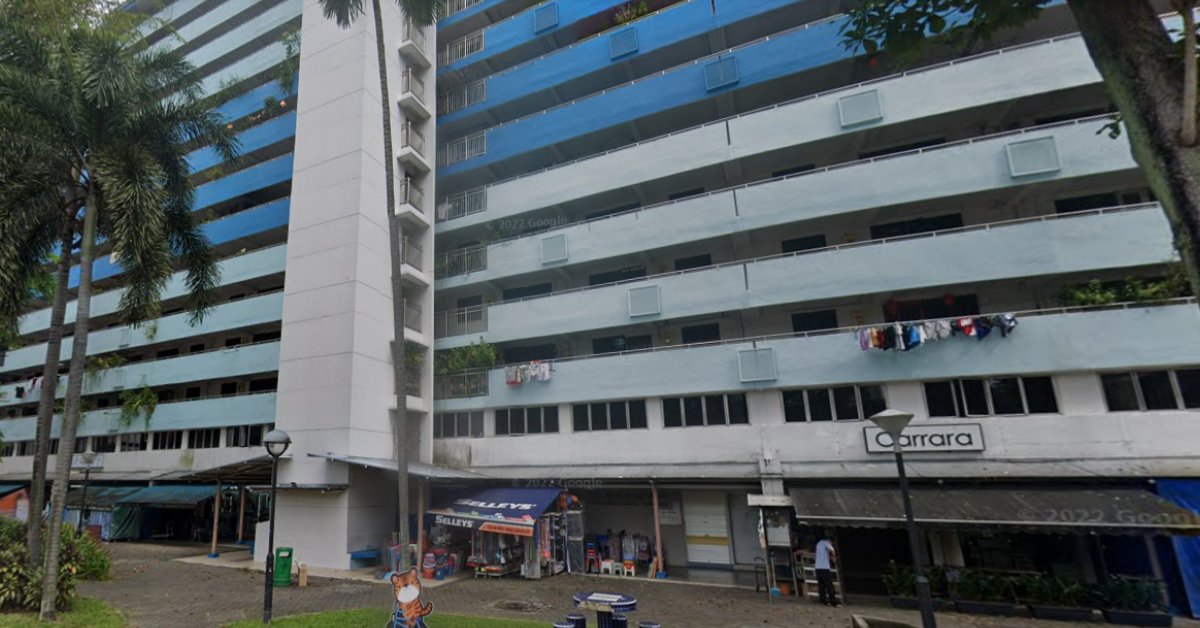After around 170 people at an HDB block at Bukit Merah tested positive for tuberculosis, all residents and workers at that block are now required to undergo screening for the disease as well.
Just yesterday (24 June), the Ministry of Health announced through a news release that tuberculosis screening will be available to residents and workers of Block 2 Jalan Bukit Merah from 24 to 25 June, meaning that there is an extension of the previous screening period.
“The extended screening exercise and further tests will be conducted free of charge. All persons living or working at the block who have not been screened for tuberculosis are required to participate in the extended screening exercise,” MOH announced.
All current and former residents of the block, as well as stallholders, shop owners and their employees who work at the block, will be required to attend the screening.
“The screening is mandatory under the Infectious Diseases Act. Persons who have been recalled for further tests will also be required to complete these tests,” MOH added.
In addition to the screening, there will also be on-site chest X-ray services for those who require further testing.
The screening, which is free, is the second round of tuberculosis screening for residents and workers of Block 2 Jalan Bukit Merah.
Just last month, a round of voluntary screening was conducted in the area from 27 to 31 May.
MOH also added that staff from the National Centre for Infectious Diseases (NCID) have carried out visits to “non-respondent units” in the block in an attempt to try and encourage residents who have yet to be screened for tuberculosis to undergo the screening.
Residents can undergo screening at the screening station, which will be set up at the Queenstown Hock San Zone Residents’ Committee Centre at Block 3 Jalan Bukit Merah.
Alternatively, if residents are unable to attend the screenings on either 24 or 25 June, they can get screened at the designated SATA Clinic (Potong Pasir Medical Centre) before 5 August as well.
And if you’re wondering if you need to undergo the screening because you walked past that very block a few weeks ago, here’s the good news: you don’t.
According to the Health Ministry, the “risk of transmission to persons who are transient contacts of a TB case is low”, meaning that those who have “occasionally visited the block or vicinity” do not need to undergo screening.
Current Number of Cases in the Block
MOH also shared that out of the 749 people at the block, 574 have undergone the tuberculosis screening as of Thursday (23 June).
“Of these 574 people screened, about 30% have tested positive for tuberculosis through blood test,” MOH added.
And if you just did the math, you’ll know that that means around 170 people in the block have been diagnosed with tuberculosis.
With regards to those who have tested positive, MOH also explained that these people will have to undergo further tests in order to determine if they have a tuberculosis infection or active tuberculosis disease.
“Those with active TB disease will be treated while those with latent TB infection will be given appointments for follow-up at the TB Control Unit and offered treatment if suitable.”
Apart from that, MOH also highlighted, “We have also detected one more case that is genetically linked by Whole Genome Sequencing to the cluster. Contact investigations for the new case are ongoing.”
Screening Prompted by Tuberculosis Cluster Earlier this Year
Prior to conducting the current screenings, MOH was informed of seven tuberculosis cases that involved residents living at Block 2 Jalan Bukit Merah on 2 March.
The residents involved all lived in different units, and were diagnosed over a period of time from February 2021 to March 2022.
Upon further investigation, genetic analysis and links were found in April this year.
The links and analysis found that all seven cases contained similar genetic make-up, which meant that the cases were spread via one or more common sources.
However, despite the genetic links, none of the affected individuals knew each other. They did not interact with each other or gather in the same areas either.
Following that, MOH announced the implementation of voluntary screening in the block as a precautionary measure. The ministry “strongly encouraged” those living and working in the block to take part in the screening.
Health Advisory for Tuberculosis
Based on MOH’s announcement, tuberculosis may lead to symptoms such as a persistent cough that lasts three weeks or longer, low-grade fever, night sweats, fatigue, weight loss and chest pain.
“TB is typically spread through close and prolonged contact with an infectious individual, and not by contact with items or surfaces touched by a person with TB.
“Therefore, persons who are contacted and screened following the detection of a TB individual typically comprise family members, close workplace colleagues and acquaintances from common social activities with close and regular interaction. This approach is recommended by the World Health Organization (WHO) and is practised in Singapore,” MOH explained.
However, tuberculosis is considered endemic and “is not common” in Singapore.
“The prevalence of tuberculosis infection [is] as high as 29 per cent among those aged 70 to 79 years. Persons with tuberculosis infection do not experience symptoms of tuberculosis and are not infectious,” the ministry added.
“Tuberculosis is curable and the spread of tuberculosis is preventable. Early detection and prompt treatment of cases remain important in helping those infected and rendering them non-infectious. For individuals diagnosed with TB disease, adherence to treatment is important.”
Featured Image: Google Maps
